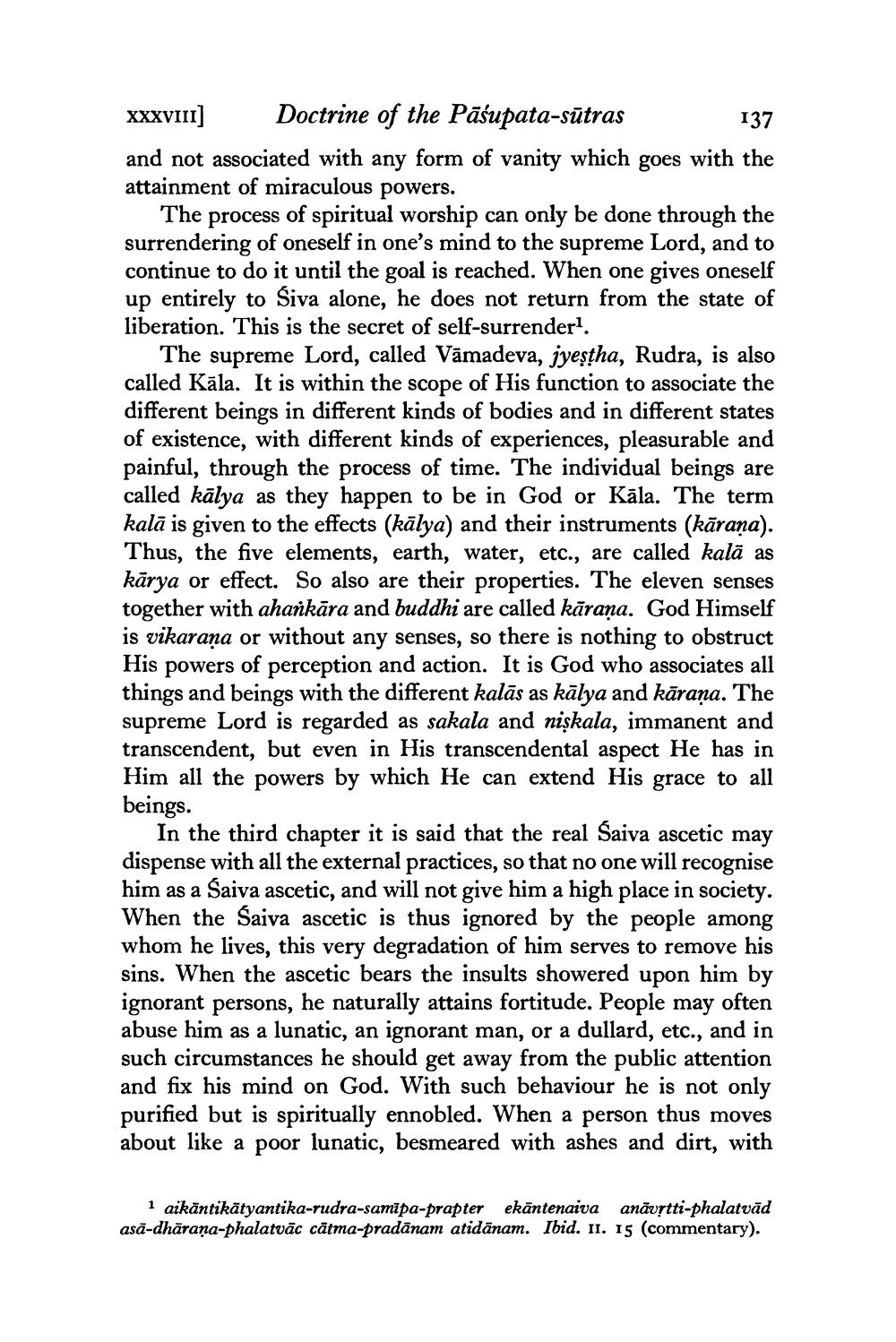________________
XXXVIII] Doctrine of the Pāšupata-sūtras 137 and not associated with any form of vanity which goes with the attainment of miraculous powers.
The process of spiritual worship can only be done through the surrendering of oneself in one's mind to the supreme Lord, and to continue to do it until the goal is reached. When one gives oneself up entirely to Siva alone, he does not return from the state of liberation. This is the secret of self-surrender?
The supreme Lord, called Vāmadeva, jyeștha, Rudra, is also called Kāla. It is within the scope of His function to associate the different beings in different kinds of bodies and in different states of existence, with different kinds of experiences, pleasurable and painful, through the process of time. The individual beings are called kālya as they happen to be in God or Kāla. The term kalā is given to the effects (kālya) and their instruments (kārana). Thus, the five elements, earth, water, etc., are called kalā as kārya or effect. So also are their properties. The eleven senses together with ahaňkāra and buddhi are called kārana. God Himself is vikarana or without any senses, so there is nothing to obstruct His powers of perception and action. It is God who associates all things and beings with the different kalās as kālya and kāraņa. The supreme Lord is regarded as sakala and nişkala, immanent and transcendent, but even in His transcendental aspect He has in Him all the powers by which He can extend His grace to all beings.
In the third chapter it is said that the real Saiva ascetic may dispense with all the external practices, so that no one will recognise him as a Saiva ascetic, and will not give him a high place in society. When the Saiva ascetic is thus ignored by the people among whom he lives, this very degradation of him serves to remove his sins. When the ascetic bears the insults showered upon him by ignorant persons, he naturally attains fortitude. People may often abuse him as a lunatic, an ignorant man, or a dullard, etc., and in such circumstances he should get away from the public attention and fix his mind on God. With such behaviour he is not only purified but is spiritually ennobled. When a person thus moves about like a poor lunatic, besmeared with ashes and dirt, with
1 aikāntikātyantika-rudra-samīpa-prapter ekāntenaiva anāvstti-phalatvād asā-dhāraņa-phalatvāc cātma-pradānam atidānam. Ibid. 11. 15 (commentary).




